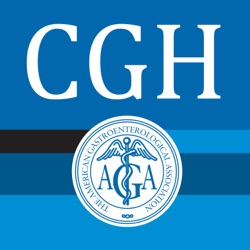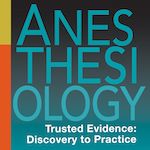Colorectal cancer rates declining in older adults, rising among children, teens
Editor's Note A new study reveals a worrying trend: While colorectal cancer rates have been decreasing in older adults, they are significantly rising among children and teens, Healthline May 9 reports. The findings from this study will be presented on Monday, May 20, at the Digestive Disease Week conference in…
US News & World Report best ASCs ranking now available

Editor's Note With the goal of helping patients choose if outpatient care is right for them and identify the right ambulatory surgery center (ASC) for their needs, US News & World Report unveiled on May 14 its inaugural ranking of the best ASCs in the US. Reportedly, “fewer than 15%…
Study explores link between diverticulitis and colorectal cancer

Editor's Note Using data from the Gastrointestinal Quality Improvement Consortium registry, this 2024 study provides new insights into the practice of recommending colonoscopy following diverticulitis episodes to rule out colorectal cancer (CRC), Clinical Gastroenterology and Hepatology April 24 reports. This study, which analyzed over 4.5 million colonoscopies performed in the…
Propofol anesthesia for colonoscopy could help find polyps, prevent cancer

Editor's Note By putting the patient into deeper sedation during colonoscopy, propofol could help doctors find difficult-to-spot, potentially cancerous “serrated” polyps, according to a study published April 17 in Anesthesiology. As an alternative to moderate, “conscious” sedation, propofol facilitates a more thorough exam that is more likely to identify serrated…
Forced-air device outperforms standard endoscope drying practices, study shows

Editor's Note Authors of a recent study evaluating the effectiveness of a forced-air drying system for endoscopes argue that the results reinforce the need to re-evaluate standard drying practices. Findings were published February 24 in the American Journal of Infection Control. Wet environments resulting from inadequate drying practices can result…
Study: Propofol sedation increases colonoscopy costs without improving outcomes

Editor's Note Although the use of propofol for colonoscopy has been rising due to beliefs that deep sedation leads to greater patient comfort, a recent systematic review and meta-analysis of nearly 1,500 patients from nine randomized controlled trials shows this view is not supported by available evidence. Published March 8…
New gel protects tissue during gastrointestinal surgery

Editor's Note Researchers at MIT have developed a new gel called GastroShield to help prevent gastrointestinal bleeding during and after surgery performed during colonoscopy screenings. Advanced Materials published the findings on February 29. Colonoscopy screenings—undergone by some 20 million Americans each year—often result in doctors finding and removing polyps. These…
Colonoscopy fees higher for hospitals than ASCs, study finds
Editor’s Note US hospitals charge approximately 55% higher average fees than ambulatory surgical centers (ASCs) for colonoscopies covered by private health insurance. The findings, from the Johns Hopkins Bloomberg School of Public Health, appeared as a research letter in JAMA Health Forum on December 15. The analysis is one of…
Study: Could 10-year screening colonoscopy intervals be extended?
Editor's Note This German study finds that extension of the currently recommended 10-year screening colonoscopy intervals may be warranted, especially for female and younger participants without gastrointestinal symptoms. Data on 1.25 million individuals in the German screening colonoscopy registry, the world’s largest registry of its kind, were analyzed. A total…
AI may improve colonoscopy accuracy
Editor's Note Researchers at Mayo Clinic Healthcare in London are investigating how artificial intelligence (AI) can be used to identify colon polyps that might otherwise get overlooked during colonoscopy. The AI system works alongside the physician in real time, scanning the colonoscopy video feed and drawing small, red boxes around…

 Free Daily News
Free Daily News